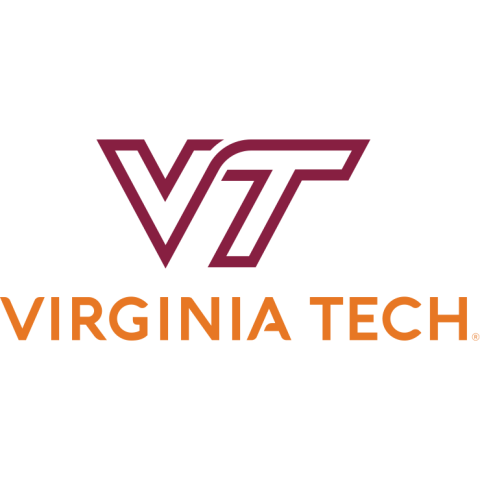
‘Researchers have a responsibility to publish’
You may also like
Many in higher education still play the “publish or perish” game, while others say too many publications are out there already. In my field – I work at the intersection of wireless systems, artificial intelligence (AI), game theory and cyber-physical systems – and, frankly, in all technology fields, I believe we have a responsibility to publish.
And this is why.
Publishing research advances knowledge and contributes to the greater good
Publishing as a process is not controversial, but there are dissenting voices. Some argue that there is no need to publish, but instead focus should be just on building products. Others argue that in today’s world, with so many publications out there, only breakthrough research should be published.
Not every single paper will be game-changing on its own. However, research is like an ongoing dialogue in which scholars build on existing theories, challenge assumptions and introduce new perspectives. Particularly in fields like mine, knowledge is cumulative, with small innovations combining with others to advance the field. I put it this way: the single research paper that instantly revolutionises the field is a rare occurrence indeed. History has taught us this already; there is, after all, only one Einstein. Instead, every published study adds to this dialogue, offering new data, insights or methodologies that other researchers can use to inform their own work. It is this cumulative work that revolutionises disciplines.
- Spotlight: Unlocking the potential of open access and open research
- In a world of AI, academic publishing that needs to change
- Life after publication: promote your work for maximum impact
This is especially true in fast-moving, life-changing fields such as wireless networks or AI. It is not just a means of professional advancement but a critical mechanism for advancing knowledge, catalysing innovation and driving the global community forward. For faculty and graduate students alike, publishing research has profound implications that extend beyond individual gain, benefiting the broader academic community, their institutions and society at large.
Publishing and making research accessible can contribute to important advances at later dates as well. For example, AI was invented years ago but computing needed to catch up. When the field did catch up, some five to seven years ago, neural networks helped revolutionise AI.
Learn from peer review and replication
Peer review allows others to both criticise and undergird your research. In the field of medicine, for example, new treatments or techniques cannot be widely adopted until they have been validated through peer-reviewed publications. The same is true in fields like engineering, social sciences and humanities, where innovative research can reshape industry practices, public policies or cultural understandings. By publishing their work, researchers ensure that their discoveries are accessible and can have a tangible impact.
Sure, there are drawbacks to the peer-review process, but with all its flaws, it remains critical to ensure the quality of the research and its trustworthiness. Without it, anyone can make unsubstantiated claims that may lead to a backward step in science rather than moving it forward.
Closely related, research outcomes can only be useful if others can replicate them. Without publication, there is no replication.
Attract funding and collaborators
Publishing promising research can attract funders and collaborators who have an academic, philanthropic or other interest in the field. Moreover, securing research funding can be easier if a researcher is oft-cited since publications add credibility. Funding agencies, both public and private, typically look for evidence that their investment will yield meaningful results. A strong publication record demonstrates that a researcher is productive, capable of conducting high-quality work and able to contribute to the scientific or academic community.
Similarly, publishing research facilitates collaboration within and outside of the academic community. When researchers share their findings, they invite others to engage with their work, either by building upon it or challenging it. This exchange of ideas leads to new collaborations and innovations. Through publications, researchers can find like-minded colleagues with aligned expertise, leading to interdisciplinary research that addresses complex problems from multiple perspectives.
Challenge and teach students
For students, the process of publishing teaches essential skills, such as writing, critical thinking and how to respond to peer feedback, which are crucial for success in both academic and non-academic careers. Students who are deprived of publications may also lose motivation if they are not supported in their work by the academic community.
Publications are also the basis for books that students eventually cover in class. As faculty who teach in addition to research, it is all but mandated for us to help students channel and build on their distinct strengths to catalyse high-quality research and get it out there.
I think about it this way: we are training students to market their work in addition to achieving the technical goals of the work. It’s not only about the research itself, but also about how to present it, how to receive criticism, and how to potentially adapt the work as needed based on this feedback. This is something students will need to know as they enter the proverbial real world.
Build professional and institutional reputation
Academic careers, especially for faculty, are still sometimes assessed in part on scholarly output. But it’s not about the prestige. Without published research, there is no tangible evidence that a researcher has the scientific credibility to speak on a particular field. This becomes extremely important if called upon to shape the future of a field in the government, industry or academia. Similarly, publications help students establish professional identity and credibility in their field – it is “branding” themselves as outstanding researchers and, more importantly, as leaders in their field.
Publishing research is a cornerstone of academic life, offering immense value to both faculty and graduate students in higher education. It serves as a critical mechanism for advancing knowledge, driving innovation and building intellectual capital across disciplines. The significance of publishing research extends far beyond personal academic success; it quite simply advances science and society. In other words, publishing is not the end goal – advancing science is. By making our research accessible to the wider academic community, we help ensure that our work has a lasting and meaningful impact that can improve quality of life around the world.
Walid Saad is a professor in the Bradley department of electrical and computer engineering at Virginia Tech. He also leads the Network intelligEnce, Wireless, and Security (NEWS) laboratory and is the Next-G wireless lead at the Virginia Tech Innovation Campus.
If you would like advice and insight from academics and university staff delivered direct to your inbox each week, sign up for the Campus newsletter.




